Equity & Justice
Democracy’s Frontlines
These poll workers are ready to pass the baton of civic duty and ignite action across new generations and communities.
For many poll workers, the job is a citizen's duty — and now more than ever amid COVID-19. But for others, it's that and more: a channel to strengthen community legacy and a vehicle for passing the civic baton to new generations.
“Poll working” has gained new traction against the backdrop of a pandemic that poses significant risks for people over 65, when two-thirds of U.S. poll workers in 2018 were older than 61. But even in a pandemic-free election year, a poll worker staffing shortage is the reality for many
jurisdictions.
Looking to get involved in your own community?
The role of a poll worker to a community during Election Season cannot be overstated, which rang powerfully clear after speaking to poll workers during this year's Connecticut primary. We asked them why they showed up to work the polls this year, amid a global pandemic and widespread power outages in the local area caused by Tropical Storm Isaias.
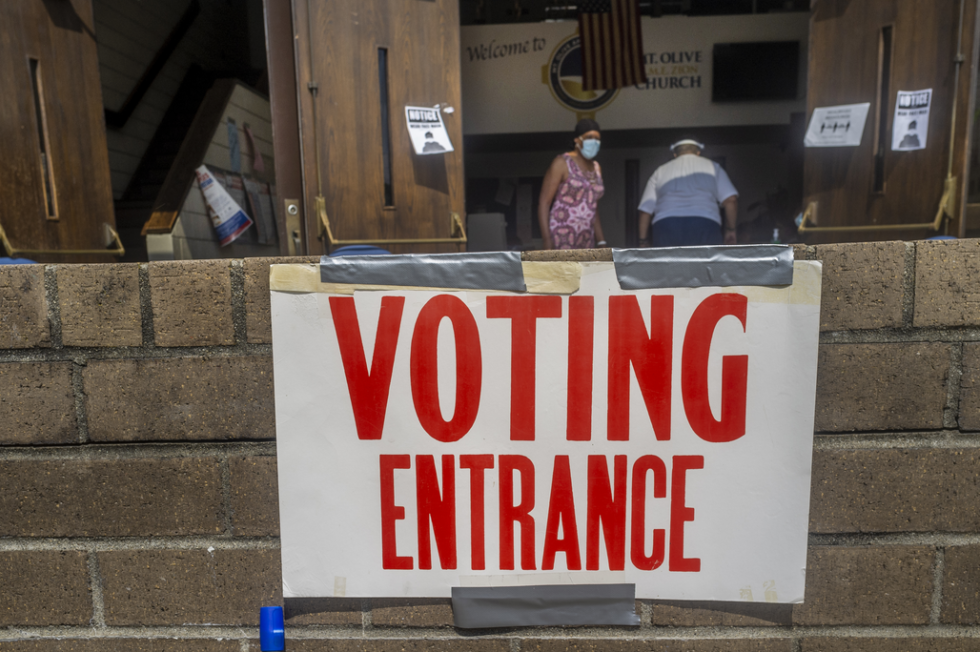
Many expressed their “why” as a deep commitment to civic duty and voter education that honors the continued fight for racial justice through the vote. Some saw it as igniting hyperlocal collective engagement within a tight-knit, though under-resourced Connecticut community. And there were those with reasons that sharply reflected their personal reality: retirees who need the poll working stipend to help pay their bills.
But they were all clear about one thing: in this unprecedented election year, it's time for those who are able to show up for their community — across generations — and power up the polls and our collective civic voices.
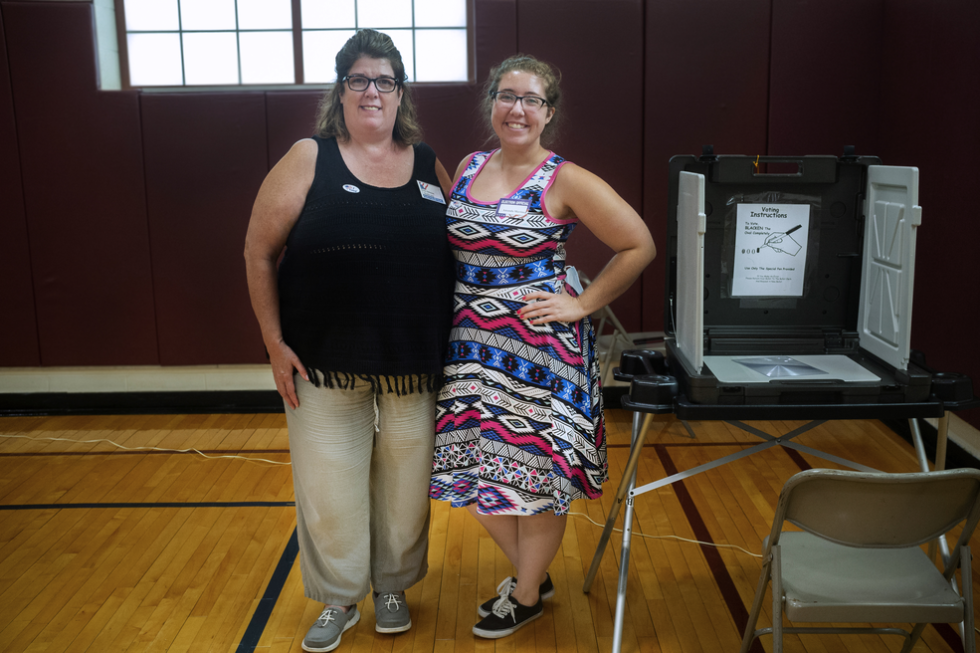
Amanda Martinez, a 27-year-old first-time poll worker, at Frank A. Berry School in Bethel, CT
At her mom's and grandmother's urging, Amanda worked the polls this year, mostly cleaning surfaces between ballot stations after voters left them. On the day of the primary elections, her own house was without power due to outages from Tropical Storm Isaias. Frank A. Berry School, where she worked the polls for Connecticut's primary, is a community hub for the town of Bethel:
“I grew up in Bethel and I've always helped my community growing up. My mom and my grandma have worked the polls for years, so I grew up visiting them working at the polls.”
Amanda was the only young poll worker at her polling station in Bethel. To other young people, she says:
“Be true to yourself, your voice matters. I would tell people my age or younger to get out there and vote, get out there and get engaged and help as much as you can. We need it.”
Amanda MartinezI would tell people my age or younger to get out there and vote, get out there and get engaged and help as much as you can. We need it.
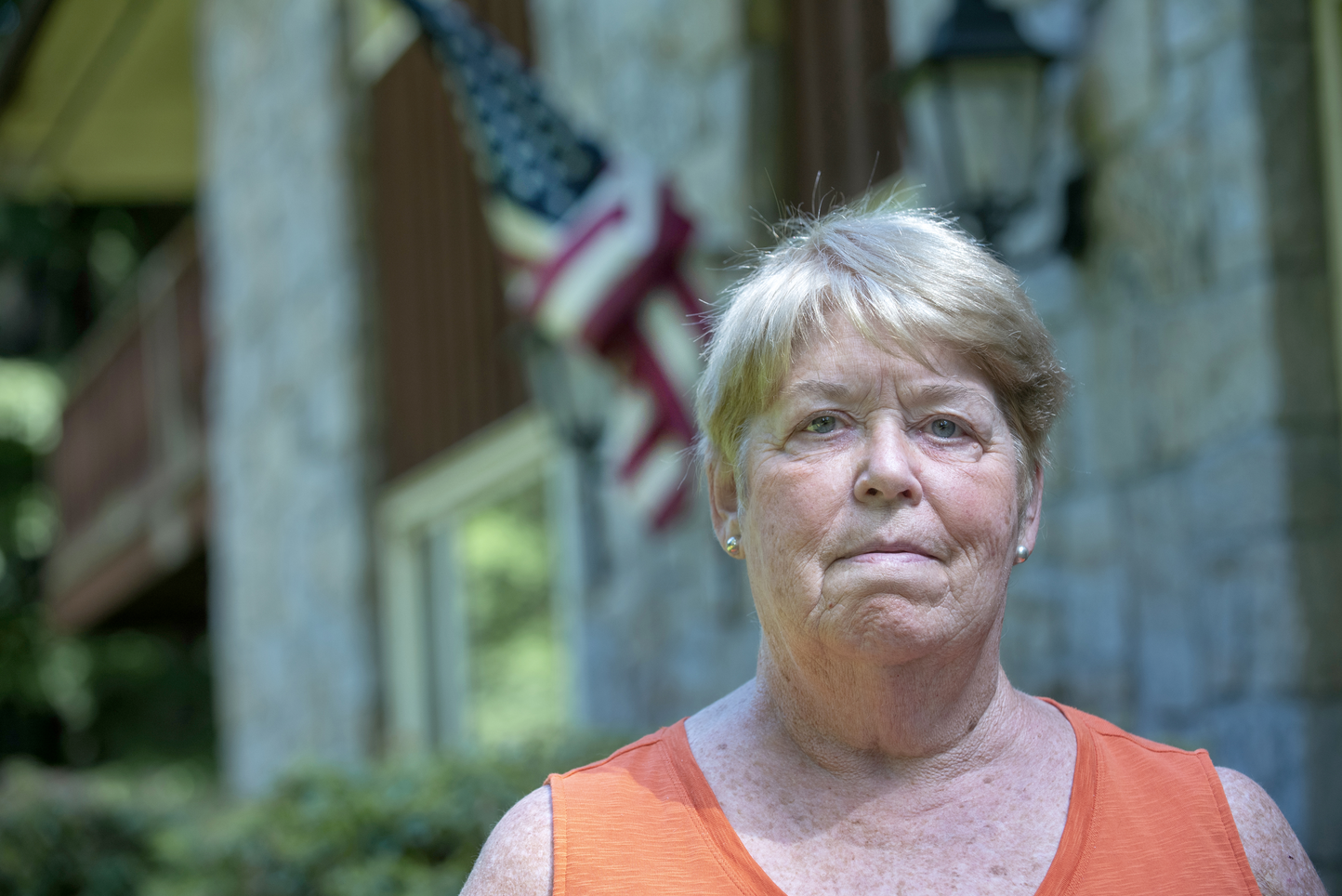
Sharon Straiton, moderator, in front of the polling station at Stony Hill Fire Department, Bethel, CT
Sharon has been a poll worker for 15 years, and grew up with a strong sense of civic responsibility and patriotism instilled in her by her father, who was in the military. She works the polls because, “It's what you do,” and she has passed that sense of duty down to her daughter Lisa and granddaughter Amanda (pictured above), both of whom also signed up to be poll workers in Bethel during the state primary:
“When I retired and someone said, ‘Come work the polls,’ I didn't even hesitate about it. Voting is part of being an American citizen. It's about being able to have a part in all the rights we have as citizens. That's what I'm supposed to do. It's an honor and it's great to be an American citizen and you should participate. That's what you should do.”
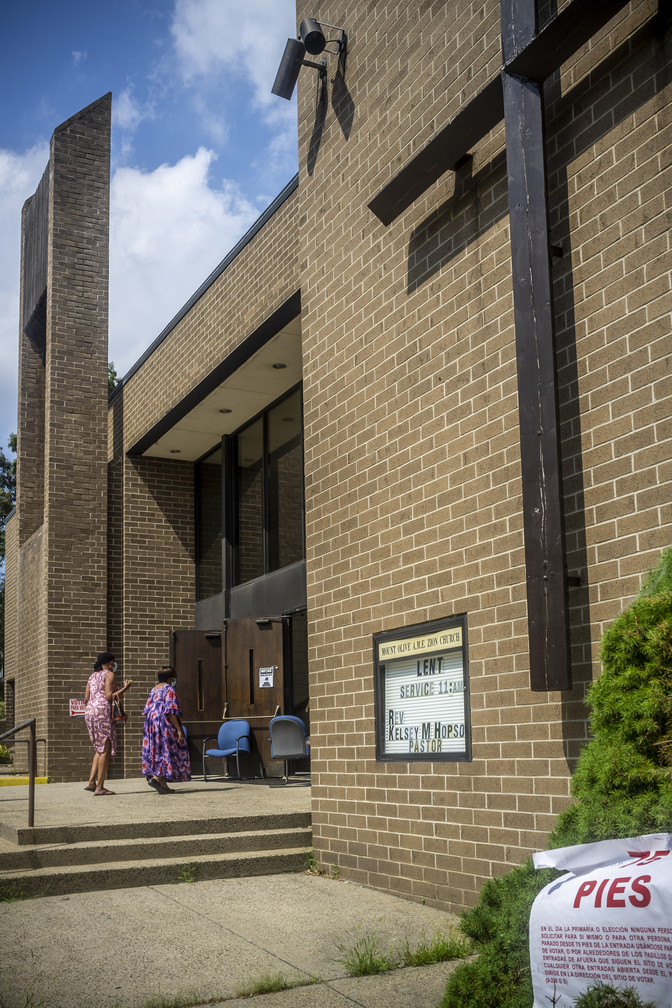
AME Zion Church, Waterbury, CT
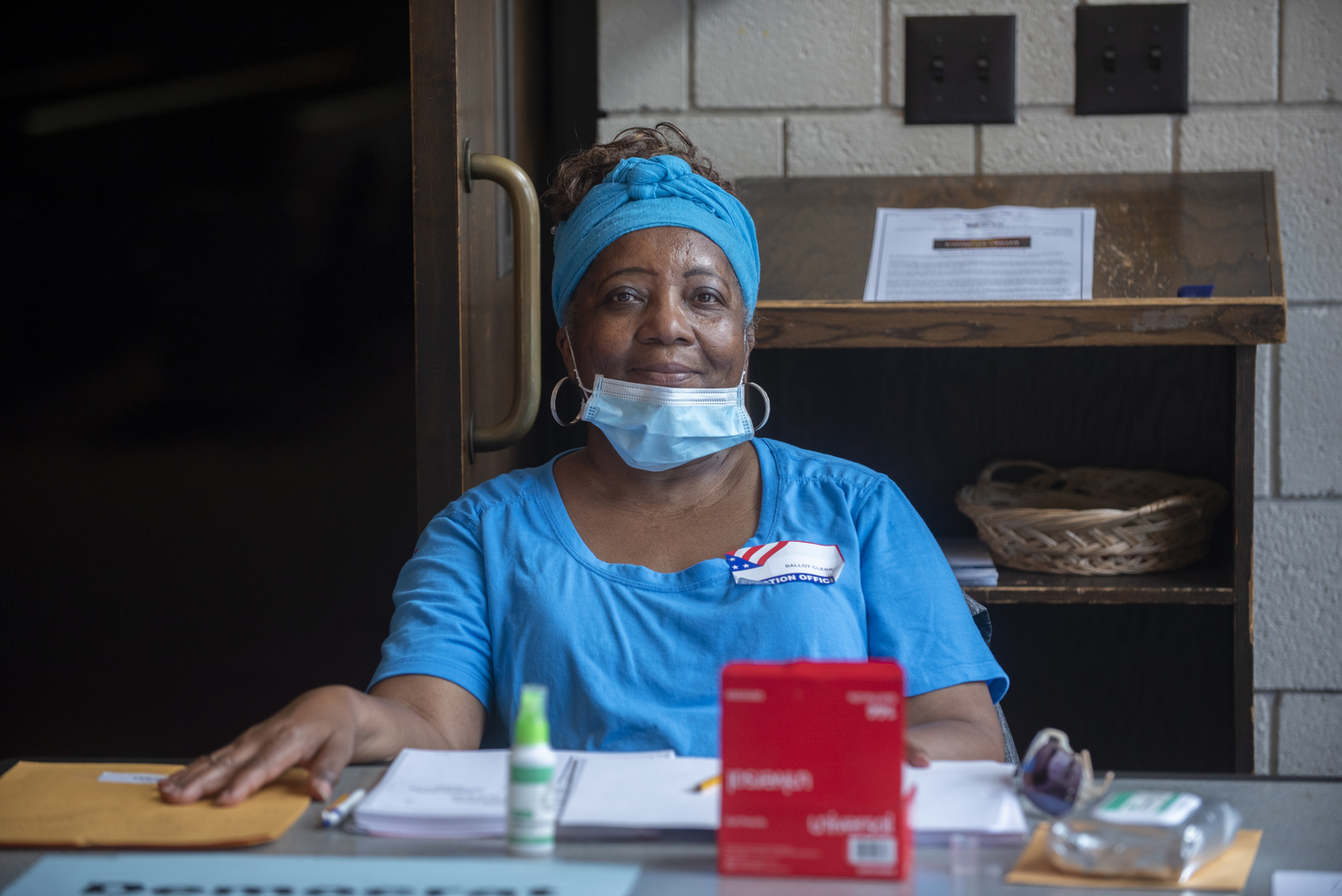
Poll worker Gladys Douglas inside the Mount Olive AME Zion Church, Waterbury, CT
Gladys had some trepidation about working the polls this year, but ultimately felt it safe enough due to the additional measures the polling location was taking. She worries that older people will be deterred from voting because of health risks posed by the pandemic, but hopes this election will galvanize young people like never before:
“I believe a lot of young people will vote this year because of so many things that are going on in the world, as you can see with the protests and all these things happening to people. So I'm sure that the younger generation will be out there to vote more than ever this year.”
Gladys DouglasI'm sure that the younger generation will be out there to vote more than ever this year.
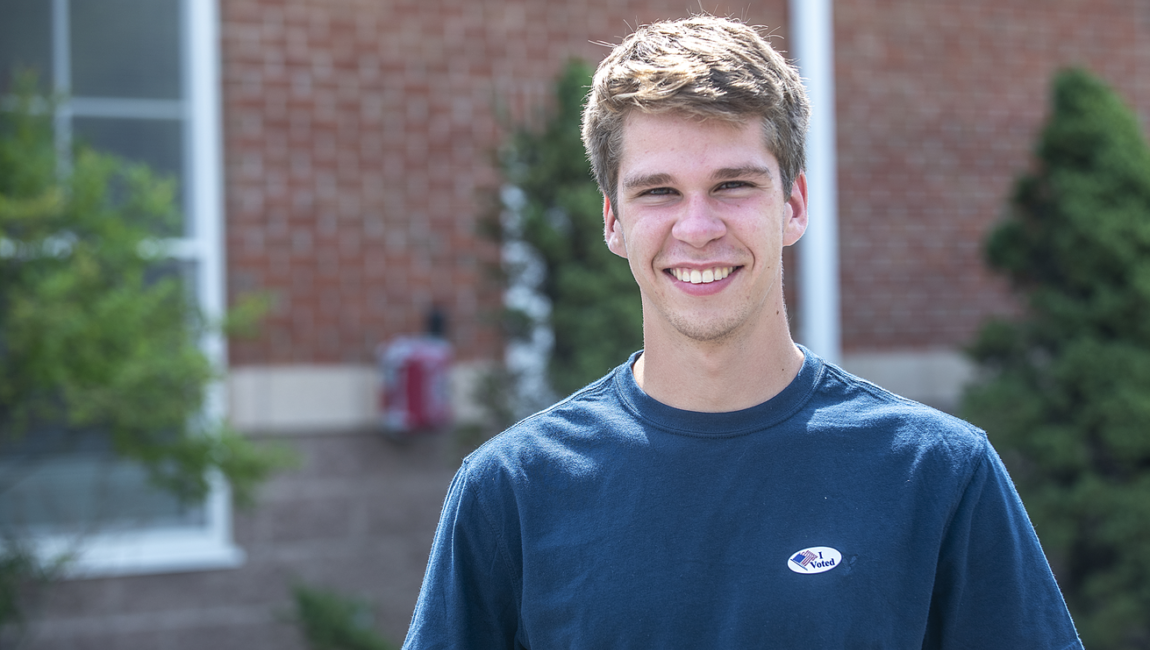
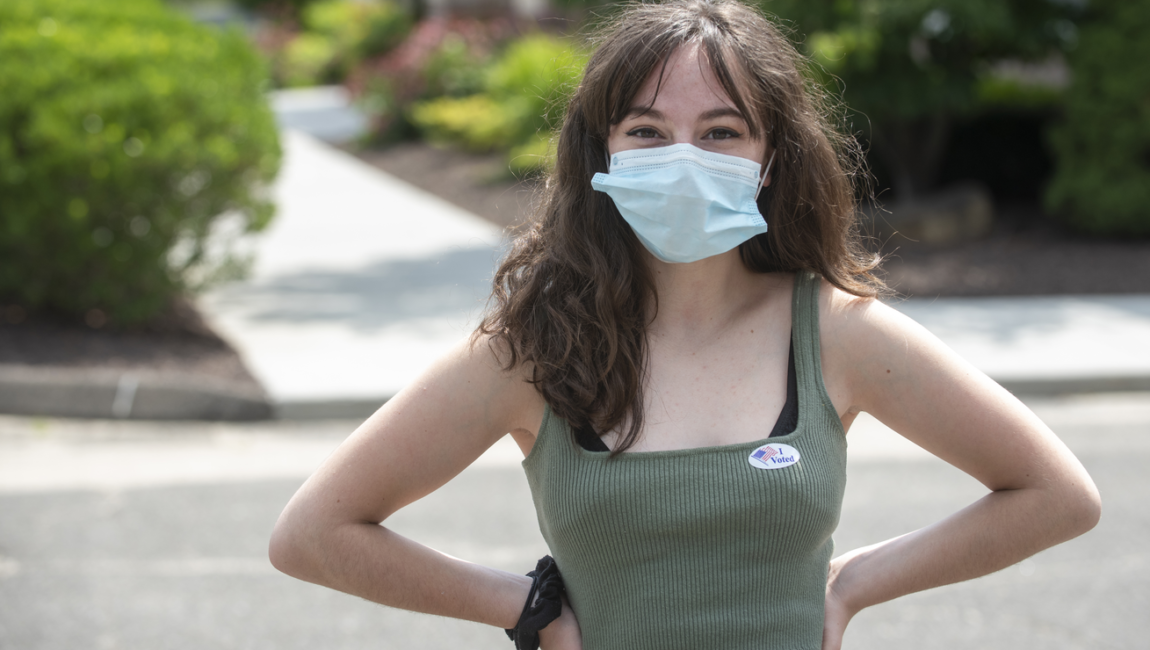
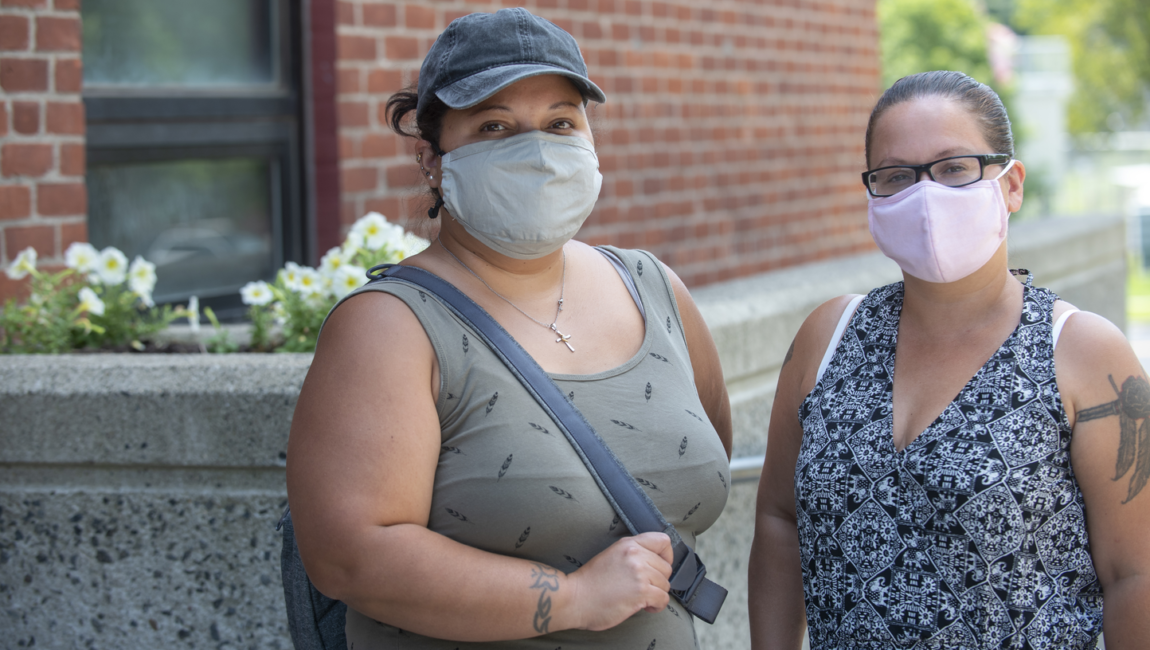
Featured are first-time voters Chris Bergen
and Jillian Rameyand, and sisters Omayra Anaya and Maria Anaya, at the polls
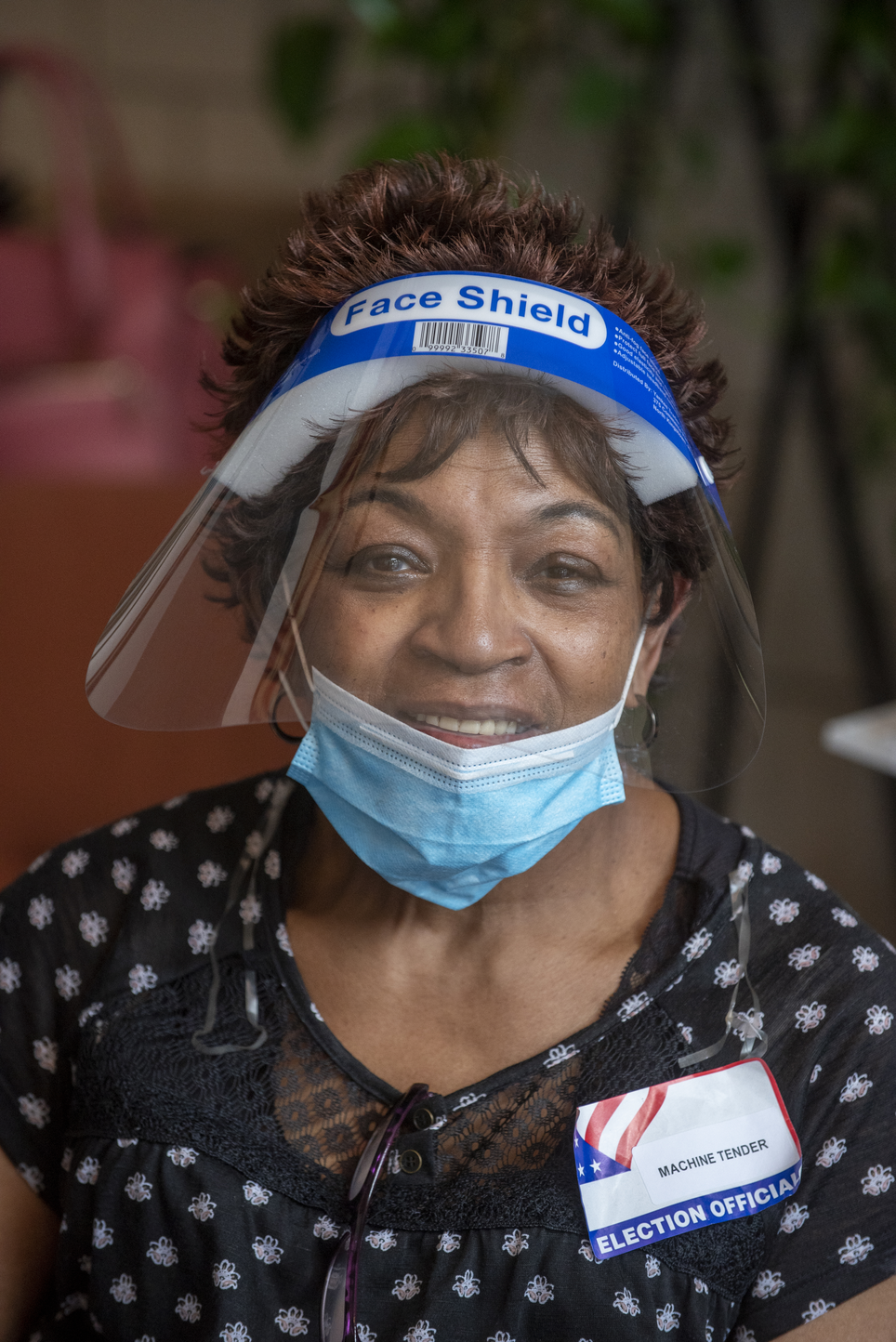
Poll worker Alice Graham inside the AME Zion Church, Waterbury, CT
Alice has worked as a poll worker for more than 10 years. For her, the role is a way to “see” and affirm young Black women new to the democratic process. But she is adamant that all people vote no matter what party they support or whether or not they like the current candidates––because she knows how much each vote matters:
“A lot of people say, ‘Well, I don't like either candidate. I don't like this. I don't like that. So I'm not going to vote.’ But that vote always makes it another vote for the other person, whoever it might be. You cannot do that. Your vote counts.”
“No matter what color, people need to be out there and work together and do what we have to do for the community, for the world at large, because we're in a dire mess. So, you know, if a young Black woman sees me out there, maybe she will say, ‘Oh okay, it's okay. Don't be afraid. Don't be fearful.’ We can be there in any capacity at the polls, people volunteer with rides, whatever we need to do to get the vote out. It's crucial.”
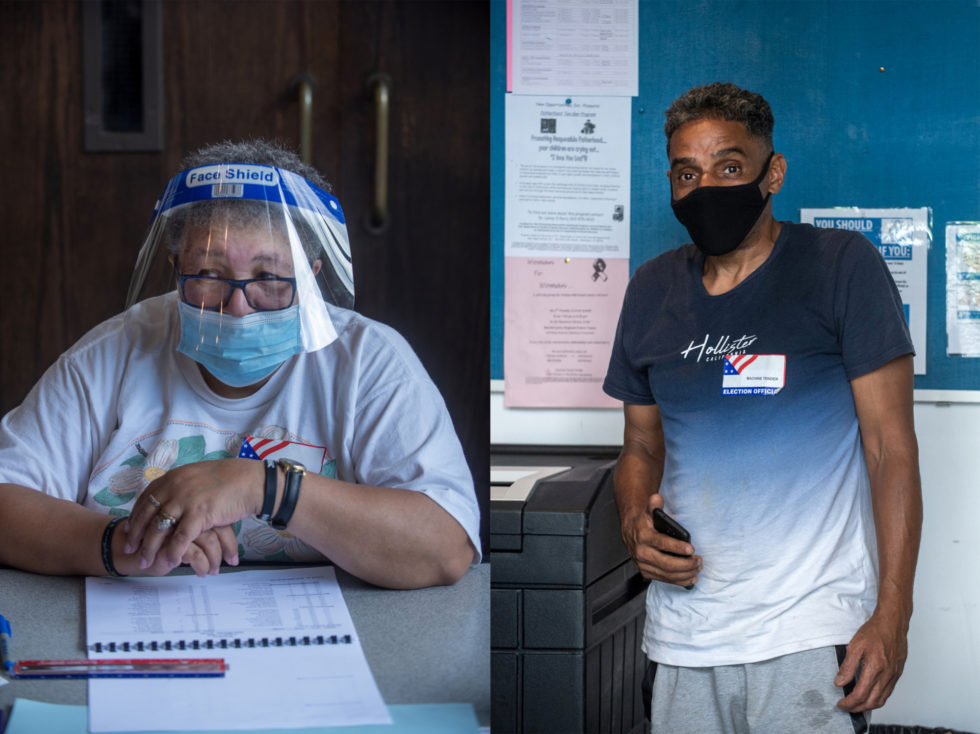
Poll workers, Deborah Fisher and Hector Rivera, inside the AME Zion Church, Waterbury, CT
Alice GrahamWhatever we need to do to get the vote out. It's crucial.
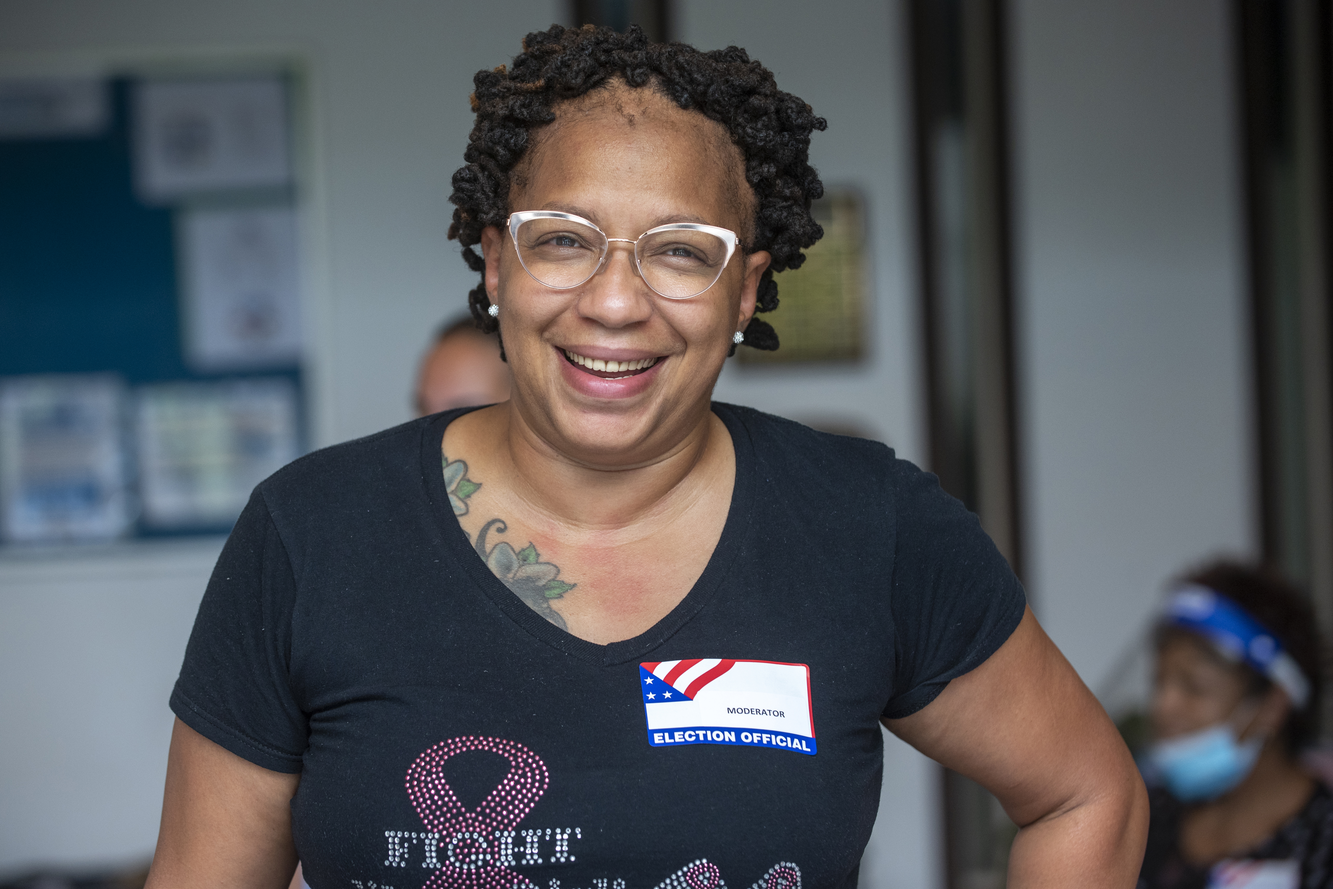
Poll worker and moderator Shawn Gaston inside the AME Zion Church, Waterbury, CT
Shawn has volunteered in several elections as an assistant moderator, but was asked to work as a Moderator in the 2020 primary elections. She does this work to "show the change," and to underscore how change comes when individuals choose to step up and work together to shape a stronger community and nation. She says:
“I lived as I live and I breathe it because I am the community. I've been on my own legally since I was 15 years old. I understand what it's like to be out there. I am the community. I've been there — I've been hungry. I get it. Our forefathers before us fought for us to have the opportunity to vote. We all have freedom of choice, and the choice is yours. And no one can force you. You have to choose, and you have to make the choice. I choose to show them gratitude for everything they've done and what they put in place for me to have that opportunity. I choose to be out there and volunteer and assist others and give them the same opportunity. It's just about educating the community.”
Shawn GastonI am the community.
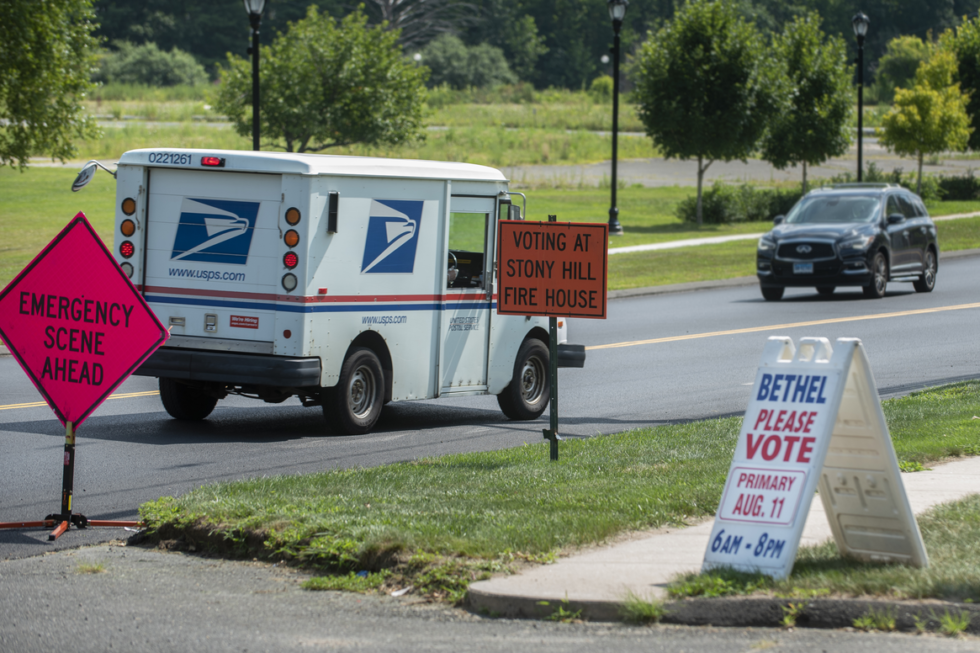
Connected Stories
-

Scapegoating Undocumented Immigrants Threatens Our Democracy
Justifying voter suppression by falsely claiming that undocumented immigrants commit voter fraud disenfranchises citizens of color; unconstitutional efforts to depress immigrants’ participation in the census undercounts entire communities.
Immigration, and Equity & Justice -

The “Illegal” “Essential” Workforce
When the pandemic decimated the American economy, an indispensable undocumented workforce was left to risk contracting coronavirus on behalf of a country that remains fixated on deporting them.
Immigration, and Equity & Justice -

The Failure of an Enforcement-Only Approach to Immigration
Instead of creating a path to citizenship for 11 million aspiring Americans, we’ve built a colossal, expensive, and ineffective deportation apparatus that breathes new life into America’s prison industrial complex.
Immigration, and Equity & Justice
